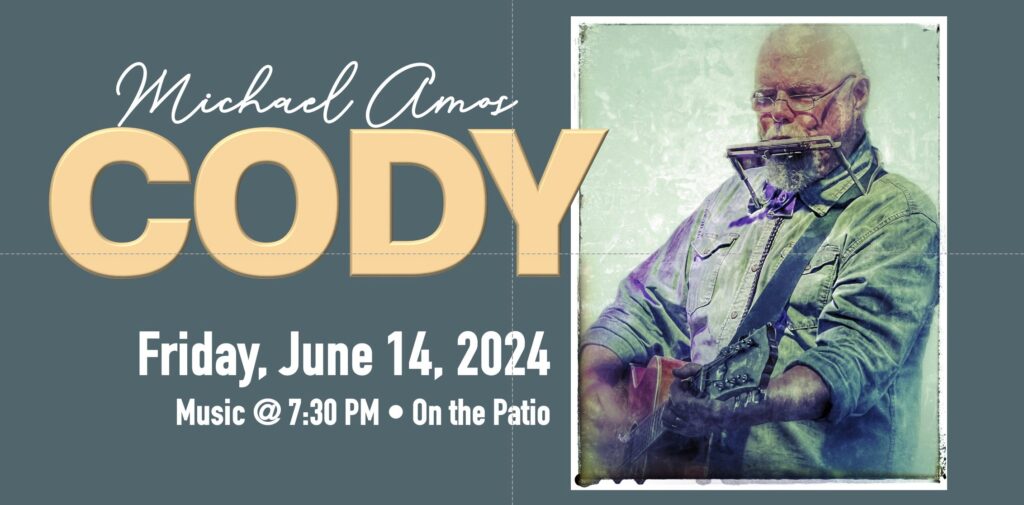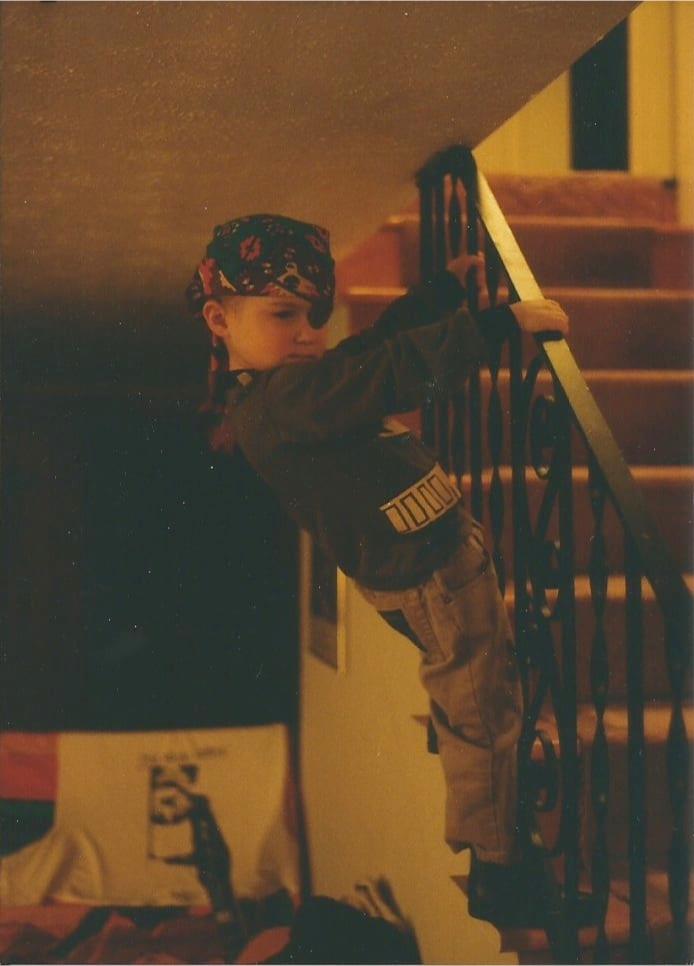“This Is Not All” is a new song that has been with me for a while. In fact, I’ve had much of it written for several years, so I suppose it’s more accurate to say that it’s a newly completed song. It’s so newly completed that I haven’t even learned it yet. Still, that didn’t stop me from trying to play it at a recent gig on the Barnett Patio. I flubbed a bunch of it, especially toward the end, but it’s now out there in the world. I’ll continue to work on the music, but I feel like the lyrics are finished and say what I want them to say.
The first verse began with hiking a trail—going on a ramble, as my friend Scott Honeycutt calls it. The lines borrow some sentiments from Emerson, Thoreau, and Dickinson (and many others, I’m sure). We too often go out into nature, as Emerson and Thoreau caution us, looking for the big payoff in the scenery—a dramatic waterfall, the colors of autumn leaves, the mountaintop view of distance (even to the moon). Emerson writes in “Beauty,” the third chapter of Nature, “Go out of the house to see the moon, and ’tis mere tinsel; it will not please as when its light shines upon your necessary journey.”
But the trail offers much at which to wonder that is seen only if we turn our eyes away from the big picture, away from the big expectations, and look down—not necessarily down, but just look.
Not all the wonder along the trail
is to be found in woods and sky—
look closer.
It’s the tiny frog hidden in clover
and that creature in the dust with a hundred legs or more.
It’s in how I find my way home
and that flower I never noticed by the door.
I like the last two lines in particular. Have you ever thought about how wonderful it is that you can—as long as you have a sound mind—find your way home? And you probably know many different ways to get home. Consider the Keb’ Mo’ song “More Thank One Way Home.” Take that as realistically or metaphorically as you wish.
As for the last line, Emily Dickinson writes in her poem 446 (Franklin; “This was a Poet”) that the poet
Distills amazing sense
From Ordinary Meanings –
And Attar* so immense
From the familiar species
That perished by the Door –
We wonder it was not Ourselves
Arrested it – before –
(*Attar = fragrance)
Here, Dickison suggests—as Emerson does in his essay “The Poet”—that the poet (or the poetic eye) sees the richness, even the strangeness and wonder, in the familiar. Although those without the poet’s vision are subject to a kind of “ceaseless Poverty,” we still have the potential to understand and be enriched through that vision. That is, once the poet points out the wonder in the “familiar species / That perished by the Door”—”that flower I never noticed by the door”—we are enriched second-hand.
The second verse of “This Is Not All” sticks with wonder and the wonderful:
Not all the wonder along the way
is waiting somewhere far ahead—
look closer.
A little boy runs in cape and mask,
another stands shirtless in a barnyard banging a drum.
A little girl learns to cartwheel,
And another stands by the road and sticks out her thumb.
The idea here is that when we travel, whether on the road or trail or metaphorically through life, we often let the destination or goal loom so large in our minds that we ignore or lose sight of what is wonderful “along the way.” Consider the old adage that the journey is more important than the destination. The “little boy” is my son Raleigh, who had a vivid imagination and a love of costume.
The image of the other boy is from my travels at some point some years ago. I was driving in Indiana or Illinois or Iowa—somewhere with corn to the horizon. Just off the interstate was a large farmhouse, a big barn to the right of it (in the background, corn to the horizon from which a storm approached). In the barnyard, this kid—a teenager, at least—sat behind a full drum set and seemed in the middle of a massive rock ‘n’ roll show drum solo. A vivid, amazing scene!
The cartwheeling and hitchhiking girls are less real images than they are contrasts in innocence and experience, security and danger. But each of these has in it an element of wonder.
The song takes a dark turn to look at evil. The third verse recognizes that we leave ourselves open to the threatening workings of evil if we believe that it exists only in obvious places—”the terrorist and thief.”
Not all the evil in the world
is in the terrorist and thief—
look closer.
It’s in the thousand faces of ignorance—
political and corporate and religious.
It’s in the hate and hunger
and the trumped-up fights that pit them against us.
Ignorance is possibly the worst evil in our world today. Many of us seem to be getting to the point where we can’t see anything except through the lenses of ignorance, rage, and prejudice, our desire to win at all cost (while too ignorant to count the ultimate cost), our desire to “own” ______ [insert your fear/hate here], the devotion of our time and minds and hearts to conspiracy (which even if real probably has little to do with you and your little you might brighten). Charles Dickens wrote in his last scene with the Ghost of Christmas Present about “a boy and girl” that Scrooge spots hiding under the skirts of the Ghost’s robe, children [y]ellow, meagre, ragged, scowling, wolfish. . . .” When Scrooge asks if they are the children of the Ghost of Christmas Present, the spirit answers,
“‘They are Man’s. . . . And they cling to me, appealing from their fathers. This boy is Ignorance. This girl is Want. Beware of them both, and all of their degree, but most of all beware this boy, for on his brow I see that written which is Doom, unless the writing be erased. Deny it! . . . Slander those who tell it ye! Admit it for your factious purposes, and make it worse! And bide the end!'”
Charles Dickens’s A Christmas Carol
In our devaluing of education and of ourselves along with it, we have opened the door wide to all sorts of evil. The ignorant parents and grandparents and legislators slander teachers as misleading and “indoctrinating” their students. The ignorant revel in their ignorance as their badge of difference from the educated and the expert. (This is what Dickens refers to when he writes, “Admit it for your factious [that is, divisive] purposes, and make it worse!”). Thomas Jefferson—author of the U.S. Declaration of Independence—wrote elsewhere that “the spirit of the people [is not] infallible” and we “will become . . careless. A single zealot may commence persecutor, and better men be his victims.” I think the “single zealot” is now among us in Donald Trump, who is Dickens’s boy Ignorance personified. Beware! “Deny it” and experience the “Doom” he brings.
And yet perhaps there is still goodness. Fear and hate cannot survive honest expressions of love between people, between peoples, between us. Someone who becomes friends with—who comes to love—that which is feared, be it a skin color or a faith system or an identity (LGBTQ+) or whatever, usually finds it difficult, if not impossible, to fear and hate the person that has now become, to them, a human being—recognizing another as a human being, as a child of God (if you will). And that’s what it’s about, I think, opening up of ourselves to see the humanity in everybody. It is in this recognition and love that fear and hate begin to wither and die for lack of nourishment.
That said, I suspect we’re too far gone into ignorance—and an arrogance that prevents us from recognizing our ignorance—to survive.
Still, for the song, I lifted up my mind and heart and wrote a bridge and a fourth verse and tied it all together with a refrain “This Is Not All,” which first appears after the second verse and then repeats after the third and at the end.
The means of control are more than out of our hands—
they’re far beyond our reach.
But we can love,
and love’s the root and height of all
and love’s the root and height of each.
Not all the goodness in the world
is to be found in church and child—
look closer.
It’s in the unshackled hearts that lift us
high above the right or wrong or Right or Left—
my friend’s warm hand in mine
and true emotions honestly expressed.
This is not all, no, this is not all!
Out there is more than we can own,
more than we can protect.
This is not all, no, this is not all!
Out there is more than can be known,
so much more than we expect.
This is not all!
This Is Not All
Not all the wonder along the trail
is to be found in woods and sky—
look closer.
It’s the tiny frog hidden in clover
and that creature in the dust with a hundred legs or more.
It’s in how I find my way home
and that flower I never noticed by the door.
Not all the wonder along the way
is waiting somewhere far ahead—
look closer.
A little boy runs in cape and mask,
another stands shirtless in a barnyard banging a drum.
A little girl learns to cartwheel,
And another stands by the road and sticks out her thumb.
This is not all, no, this is not all!
Out there is more than we can own,
more than we can protect.
This is not all, no, this is not all!
Out there is more than can be known,
so much more than we expect.
This is not all!
Not all the evil in the world
is in the terrorist and thief—
look closer.
It’s in the thousand faces of ignorance—
political and corporate and religious.
It’s in the hate and hunger
and the trumped-up fights that put them against us.
This is not all, no, this is not all!
Out there is more than we can own,
more than we can protect.
This is not all, no, this is not all!
Out there is more than can be known,
so much more than we expect.
This is not all!
The means of control are more than out of our hands—
they’re far beyond our reach.
But we can love,
and love’s the root and height of all
and love’s the root and height of each.
Not all the goodness in the world
is to be found in church and child—
look closer.
It’s in the unshackled hearts that lift us
high above the right or wrong or Right or Left—
my friend’s warm hand in mine
and true emotions honestly expressed.
This is not all, no, this is not all!
Out there is more than we can own,
more than we can protect.
This is not all, no, this is not all!
Out there is more than can be known,
so much more than we expect.
This is not all!


